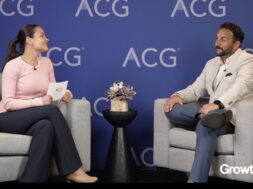Family Firm Fit: Evaluating Cultural Synergy
When considering a sale, it’s important for family businesses to remember that due diligence is a two-way street when it comes to culture fit.

This content is brought to you by Grant Thornton.
As M&A deal activity continues to accelerate, it’s critical for would-be buyers and sellers to apply a cultural lens to test interorganizational fit. This is especially true of family-owned businesses.
When considering a sale, it’s important for family businesses to remember that due diligence is a two-way street when it comes to considering the culture fit. They should focus on five critical success factors to ensure a fit with a potential buyer: decision-making style; leadership focus; appetite for risk and change management; talent development and team effectiveness; and shared values and beliefs.
Considering cultural synergies will help ensure success and determine whether a blended organization makes sense. And while a family business’s cultural distinctiveness does not typically appear on the books as an asset, preserving its valuable aspects should be considered a top priority in an M&A deal.
Daseke Inc., a flatbed trucking company that began as a family-owned business, took this approach as it grew from $30 million to $1.5 billion and added 17 companies to its portfolio.
When seeking acquisitions, Daseke focuses on family-first companies that align with its own values and culture. Don Daseke, the company’s CEO, noted in a recent National Center for the Middle Market podcast that his business respects the legacy of families behind its acquisition targets, typically businesses that have been managed by the same family for more than 50 years. Daseke makes a concerted effort to maintain the culture—and retain the leadership—that’s made the business successful.
Assessing Cultural Fit
Family businesses should perform due diligence on a potential buyer to help protect their legacy and culture. They should consider performing a cultural assessment that addresses a range of topics, including the buyer’s talent management approach. How will it handle talent management in the new blended organization? Is it a performance-management culture? What is the average tenure of an employee?
An assessment should also explore the buyer’s operational model. How are key decisions made? How does work get done and where can efficiencies be gained? How are budgets developed and managed?
And finally, the assessment should explore the buyer’s brand values. How closely aligned are its values to those of the family business? What presence does the company have in its local community?
In addition to evaluating the potential buyer through discussions with company leaders and employees and through observation, it is beneficial to review key documents and collateral, such as the company’s vision and mission statements; employee communications, such as newsletters and memos; policy handbooks; and organizational charts. Understanding the cultural dynamics of the acquiring organization can help with integration and ensure the culture will enhance value creation.
Selling a family-owned business is a major decision that will impact not only family members but also long-term employees and customers. Performing comprehensive cultural due diligence will help ensure it’s the right decision and one that will help preserve the family’s legacy, culture and values for the long term.
This story originally appeared in the November/December 2018 print edition of Middle Market Growth magazine. Read the full issue in the archive.

Tiffany Yates, Ph.D., is senior manager of organizational strategy at Grant Thornton.

Sharon Whittle is Grant Thornton’s principal of human capital services.

Ed Kleinguetl is Grant Thornton’s partner, transaction services.


